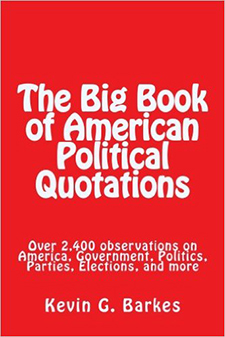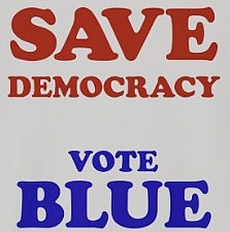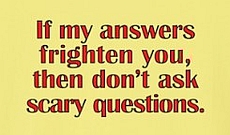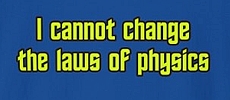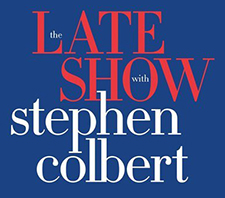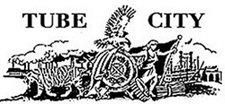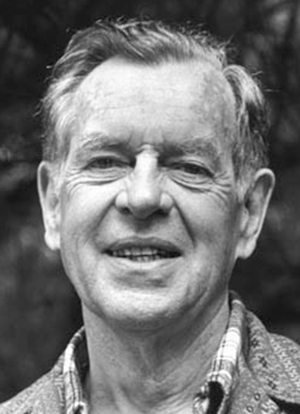
Joseph John Campbell (March 26, 1904 - October 30, 1987) was an American mythologist, writer and lecturer, best known for his work in comparative mythology and comparative religion. His work is vast, covering many aspects of the human experience. His philosophy is often summarized by his phrase: "Follow your bliss." (Click here for full Wikipedia article)
-----
All cultures... have grown out of myths. They are founded on myths. What these myths have given has been inspiration for aspiration. The economic interpretation of history is for the birds. Economics is itself a function of aspiration. It’s what people aspire to that creates the field in which economics works.
All religions are true but none are literal.
All the gods, all the heavens, all the hells, are within you.
Apocalypse does not point to a fiery Armageddon but to the fact that our ignorance and our complacency are coming to an end... The exclusivism of there being only one way in which we can be saved, the idea that there is a single religious group that is in sole possession of the truth- that is the world as we know it that must pass away. What is the kingdom? It lies in our realization of the ubiquity of the divine presence in our neighbors, in our enemies, in all of us.
Centuries of husbandry, decades of diligent culling, the work of numerous hearts and hands, have gone into the hackling, sorting, and spinning of this tightly twisted yarn. Furthermore, we have not even to risk the adventure alone; for the heroes of all time have gone before us; the labyrinth is thoroughly known; we have only to follow the thread of the hero-path. And where we had thought to find an abomination, we shall find a god; where we had thought to slay another, we shall slay ourselves; where we had thought to travel outward, we shall come to the center of our own existence; and where we had thought to be alone, we shall be with all the world.
Computers are like Old Testament gods; lots of rules and no mercy.
Dream is personalized myth, myth is depersonalized dream; both myth and dream are symbolic in the same general way of the dynamics of the psyche. But in the dream the forms are quirked by the peculiar troubles of the dreamer, whereas in myth the problem and solutions shown are directly valid for all mankind.
Eternity has nothing to do with time. Eternity is that dimension of here and now which thinking and time cuts out. This is it. And if you don't get it here, you won't get it anywhere. And the experience of eternity right here and now is the function of life.
Everywhere, no matter what the sphere of interest (whether religious, political, or personal), the really creative acts are represented as those deriving from some sort of dying to the world; and what happens in the interval of the hero's nonentity, so that he comes back as one reborn, made great and filled with creative power, mankind is also unanimous in declaring. We shall have only to follow, therefore, a multitude of heroic figures through the classic stages of the universal adventure in order to see again what has always been revealed. ...the singleness of the human spirit in its aspirations, powers, vicissitudes, and wisdom.
Follow your bliss and don't be afraid, and doors will open where you didn't know they were going to be.
For when scrutinized in terms not of what it is but of how it functions, of how it has served mankind in the past, of how it may serve today, mythology shows itself to be as amenable as life itself to the obsessions and requirements of the individual, the race, the age.
God is a metaphor for that which transcends all levels of intellectual thought. It's as simple as that.
Heresy is the life of a mythology, and orthodoxy is the death.
I don't believe people are looking for the meaning of life as much as they are looking for the experience of being alive.
I don't have to have faith. I have experience.
I think it's important to live life with a knowledge of its mystery, and of your own mystery.
I think what we're seeking is an experience of being alive, so that our life experiences on the purely physical plane will have resonance within our own innermost being and reality, so that we actually feel the rapture of being alive. That's what it's all finally about.
If you can see your path laid out in front of you step by step, you know it's not your path. Your own path you make with every step you take. That's why it's your path.
In the absence of an effective general mythology, each of us has his private, unrecognized, rudimentary, yet secretly potent pantheon of dreams.
It has always been the prime function of mythology and rite to supply the symbols that carry the human spirit forward, in counteraction to those that tend to tie it back. In fact, it may very well be that the very high incidence of neuroticism among ourselves follows the decline among us of such effective spiritual aid. We remain fixated to the unexorcised images of our infancy, and hence disinclined to the necessary passages of our adulthood.
It is by going down into the abyss that we recover the treasures of life. Where you stumble, there lies your treasure.
It is not only that there is no hiding place for the gods from the searching telescope and microscope; there is no such society any more as the gods once supported.
It may be a species of impudence to think that the way you understand God is the way God is.
It's only when a man tames his own demons that he becomes the king of himself if not of the world.
Life has no meaning. Each of us has meaning and we bring it to life. It is a waste to be asking the question when you are the answer.
Life is like arriving late for a movie, having to figure out what was going on without bothering everybody with a lot of questions, and then being unexpectedly called away before you find out how it ends.
Marx teaches us to blame society for our frailties, Freud teaches us to blame our parents, and astrology teaches us to blame the universe. The only place to look for blame is within: you didn't have the guts to bring up your full moon and live the life that was your potential.
Midlife crisis is what happens when you climb to the top of the ladder and discover that it's against the wrong wall.
Mythology may, in a real sense, be defined as other people's religion. And religion may, in a sense, be understood as popular misunderstanding of mythology.
Myths are public dreams, dreams are private myths.
No tribal rite has yet been recorded which attempts to keep winter from descending; on the contrary: the rites all prepare the community to endure, together with the rest of nature, the season of the terrible cold.
Not all who hesitate are lost. The psyche has many secrets in reserve. And these are not disclosed unless required.
One thing that comes out in myths is that at the bottom of the abyss comes the voice of salvation. The black moment is the moment when the real message of transformation is going to come. At the darkest moment comes the light.
Our life evokes our character and you find out more about yourself as you go on.
Out of perfection nothing can be made.
People say that what we're all seeking is a meaning for life. I don't think that's what we're really seeking. I think what we're seeking is an experience of being alive, so that our life experiences on the purely physical plane will have resonance within our own innermost being and reality, so that we actually feel the rapture of being alive. That's what it's all finally about.
Regrets are illuminations come too late.
The happy ending is justly scorned as a misrepresentation; for the world, as we know it, as we have seen it, yields but one ending; death, disintegration, dismemberment, and the crucifixion of our heart with the passing of the forms which we have loved.
The image of the cosmos must change with the development of the mind and knowledge; otherwise, the mythic statement is lost, and man becomes dissociated from the very basis of his own religious experience. Doubt comes in, and so forth. You must remember: all of the great traditions, and little traditions, in their own time were scientifically correct. That is to say, they were correct in terms of the scientific image of that age. So there must be a scientifically validated image. Now you know what has happened: our scientific field has separated itself from the religious field, or vice-versa.... This divorce this is a fatal thing, and a very unfortunate thing, and a totally unnecessary thing.
The influence of a vital person vitalizes, there's no doubt about it. The world without spirit is a wasteland. People have the notion of saving the world by shifting things around, changing the rules, and who's on top, and so forth. No, no! Any world is a valid world if it's alive. The thing to do is to bring life to it, and the only way to do that is to find in your own case where the life is and become alive yourself.
The modern hero-deed must be that of questing to bring to light again the lost Atlantis of the co-ordinated soul.
The privilege of a lifetime is being who you are.
The tribal ceremonies of birth, initiation, marriage, burial, installation, and so forth, serve to translate the individual’s life-crises and life-deeds into classic, impersonal forms. They disclose him to himself, not as this personality or that, but as the warrior, the bride, the widow, the priest, the chieftain; at the same time rehearsing for the rest of the community the old lesson of the archetypal stages.
The way to find out about your happiness is to keep your mind on those moments when you feel most happy, when you really are happy-not excited, not just thrilled, but deeply happy. This requires a little bit of self analysis. What is it that makes you happy? Stay with it, no matter what people tell you. This is what I call 'following your bliss.'
There is no make-believe about heaven, future bliss, and compensation, to alleviate the bitter majesty, but only utter darkness, the void of unfulfillment, to receive and eat back the lives that have been tossed forth from the womb only to fail.
There seem to be only two kinds of people: Those who think that metaphors are facts, and those who know that they are not facts. Those who know they are not facts are what we call atheists, and those who think they are facts are religious. Which group really gets the message?
This death to the logic of emotional commitments of our chance moment in the world of space and time, this recognition of, the shift of our emphasis to, the universal life that throbs and celebrates its victory in the very kiss of our own annihilation, this amor fati, 'love of fate,' love of the fate that is inevitably death, constitutes the experience of the tragic art...
This is the threat to our lives. We all face it. We all operate in our society in relation to a system. Now is the system going to eat you up and relieve you of your humanity or are you going to be able to use the system to human purposes? ... If the person doesn't listen to the demands of his own spiritual and heart life and insists on a certain program, you're going to have a schizophrenic crack-up. The person has put himself off center. He has aligned himself with a programmatic life and it's not the one the body's interested in at all. And the world's full of people who have stopped listening to themselves.
This thing up here, this consciousness, thinks it's running the shop. It's a secondary organ. It's a secondary organ of a total human being, and it must not put itself in control. It must submit and serve the humanity of the body.
We are standing on a whale fishing for minnows.
We can't cure the world of sorrows but we can choose to live in joy.
We have not even to risk the adventure alone, for the heroes of all time have gone before us- the labyrinth is thoroughly known. We have only to follow the thread of the hero path, and where we had thought to find an abomination, we shall find a god; where we had thought to slay another, we shall slay ourselves; where we had thought to travel outward, we shall come to the center of our own existence. And where we had thought to be alone, we shall be with all the world.
We must let go of the life we have planned, so as to accept the one that is waiting for us.
We're in a freefall into future. We don't know where we're going. Things are changing so fast, and always when you're going through a long tunnel, anxiety comes along. And all you have to do to transform your hell into a paradise is to turn your fall into a voluntary act. It's a very interesting shift of perspective and that's all it is... joyful participation in the sorrows and everything changes.
What is a god? A god is a personification of a motivating power of a value system that functions in human life and in the universe.
When we quit thinking primarily about ourselves and our own self-preservation, we undergo a truly heroic transformation of consciousness.
Where we had thought to travel outward, we shall come to the center of our own existence. And where we had thought to be alone, we shall be with all the world.
Wherever the hero may wander, whatever he may do, he is ever in the presence of his own essence- for he has the perfected eye to see. There is no separateness. Thus, just as the way of social participation may lead in the end to a realization of the All in the individual, so that of exile brings the hero to the Self in all.
Categories: Joseph Campbell, Quotes of the day
Home KGB on Bluesky KGB on Substack
KGB Stuff Commentwear E-Mail KGB
Donate via PayPal


